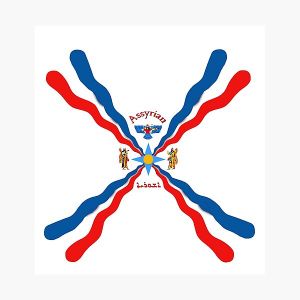Difference between revisions of "Language/Assyrian-neo-aramaic/Vocabulary/Days-of-the-week"
< Language | Assyrian-neo-aramaic | Vocabulary
Jump to navigation
Jump to search
(→Quiz) |
|||
| Line 3: | Line 3: | ||
== Days of the Week in Assyrian Neo-Aramaic == | == Days of the Week in Assyrian Neo-Aramaic == | ||
# Sunday - | # Sunday - Khosheba | ||
# Monday - | # Monday - Trosheba | ||
# Tuesday - | # Tuesday - Tlosheba | ||
# Wednesday - | # Wednesday - Arbosheba | ||
# Thursday - | # Thursday - Khamshosheba | ||
# Friday - | # Friday - rota | ||
# Saturday - | # Saturday - Shabta | ||
== Examples of Usage: == | == Examples of Usage: == | ||
{{Assyrian-neo-aramaic-Page-Top}} | {{Assyrian-neo-aramaic-Page-Top}} | ||
</small> | </small> | ||
Revision as of 23:32, 11 January 2024
Assyrian Neo-Aramaic is a modern Aramaic language spoken by the Assyrian people, predominantly found in Iraq, Iran, Syria, and Turkey. In this article, we will explore the vocabulary of the days of the week in Assyrian Neo-Aramaic, along with examples of their usage in sentences. At the end of this article, you will find a short quiz to test your understanding of the days of the week in Assyrian Neo-Aramaic.
Days of the Week in Assyrian Neo-Aramaic
- Sunday - Khosheba
- Monday - Trosheba
- Tuesday - Tlosheba
- Wednesday - Arbosheba
- Thursday - Khamshosheba
- Friday - rota
- Saturday - Shabta
Examples of Usage:
Other Lessons
- Drinks
- Clothes
- Count to 10
- Fruits
- Education
- Months of the year
- Greetings
- Time
- Feelings and Emotions
- Animals
